Originally published March 18, 2019 in the Grand Haven Tribune.
By Krystle Wagner
A Grand Haven educator was among 150 health and physical educators from across the country to participate in Speak Out! Day.
Scott Przystas, a physical education teacher for Grand Haven Area Public Schools, visited Washington, D.C., last week to advocate for lawmakers to fund programs for health and physical education and professional development through the Title IV, Part A, Student Support, which is under the Every Student Succeeds Act (ESSA) that was passed in 2015.

Educators from 39 states participated in the 12th annual Society of Health and Physical Educators (S.H.A.P.E. America) member advocacy event, March 5-6.
Before meeting with lawmakers and staff members, Przystas said the educators received an update about funding levels.
In fiscal years 2018 and 2019, Title IV, Part A was funded at $1.1 billion and $1.17 billion, respectively. Przystas said every state has an allocated amount and districts can apply for the funds.
Przystas’ fourth-graders at Rosy Mound Elementary School also played a part in helping Congress understand the role their physical education class plays in their lives. The students learned about the trip Przystas planned to take, and they wrote persuasive essays to members of Congress by answering questions such as why they think physical education is important, how it makes them feel and what they’ve learned.
Przystas gave the letters to congressional staff members during their meetings.
“They were pretty powerful,” he said of the letters.
Przystas met with staff members in the offices of U.S. senators Debbie Stabenow and Gary Peters, and representatives Bill Huizegna, Fred Upton and Rashida Tlaib.
During the meetings, Przystas highlighted Grand Haven schools’ efforts. The examples he provided — heart rate monitors, iPads, Bluetooth speakers and projection screens — were purchased through the school district’s bond funds, but it’s what other districts could do with funding from Title IV, Part A, he noted.
In the meetings, Prystas told staffers that parents want their children to be successful and happy, but they can’t do those things if they don’t have their health.
Przystas also invited lawmakers to visit classrooms, and he hopes to arrange visits either later this year or next school year.
Przystas said he felt empowered both from being in Washington and working with the fourth-graders, and learning how they value their health and physical education. Now, the work is to advocate locally, he said.
Przystas said he also walked away from the experience with learning how to embed health advocacy into teaching and interactions every day.
Przystas noted that Michigan is one of eight states that has health and physical education written into the ESSA plan.
In a press release, S.H.A.P.E. America Director of Public Policy and Advocacy Carly Wright said that funding Title IV, Part A “at a meaningful level” is “critical” since some states’ ESSA plans fund student physical education, wellness or chronic absenteeism, “which is often impacted by a student’s health and physical activity habits.”
“This new session of Congress brings many new legislators to Capitol Hill and new committee leadership that will oversee federal education issues,” Wright said in the press release. “This gives us an important opportunity to develop new champions in Congress for health and physical education. In turn, we must be laser-focused on cultivating a strong voice in Washington, D.C., on behalf of the health and physical education community.”
Seeking IHT Spirit System information?
[contact-form-7 id=”3054″ title=”How’d you find us?”]
[turbo_widget widget-prefix=pw_call_to_action&obj-class=PW_Call_To_Action&widget-pw_call_to_action–text=%5Bbutton+href%3D%22ihtusa.com%2Fzone%22%5DIHT+Zone+Heart+Rate+Monitor+Demo%5B%2Fbutton%5D&widget-pw_call_to_action–button_text=]


